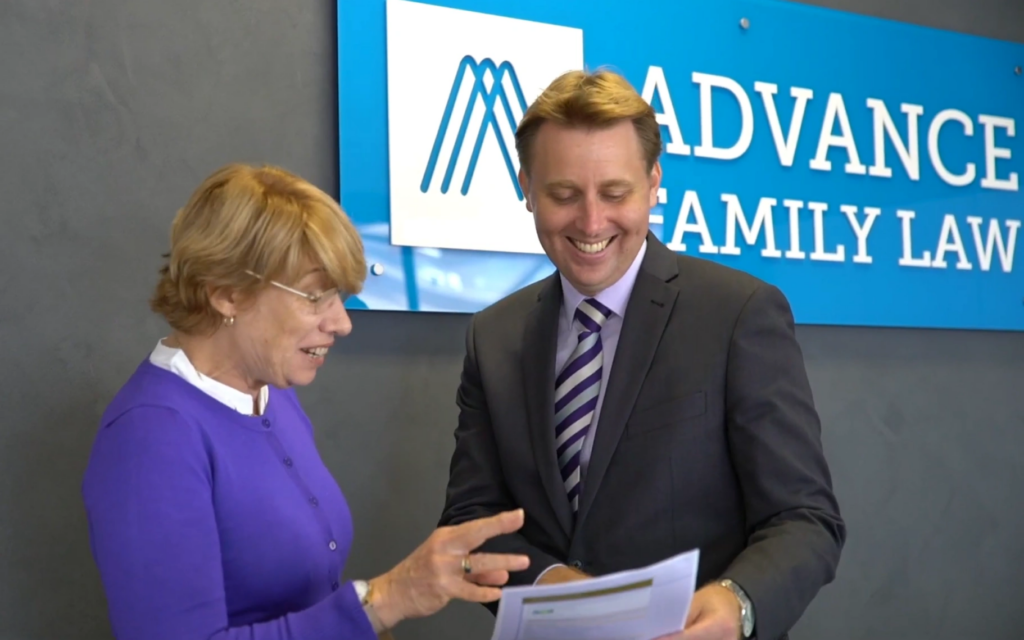Our dedicated team of domestic violence lawyers in Brisbane is here to provide expert legal advice and support in all matters related to domestic violence.
Personalised Legal Advice
Our experienced family lawyers take the time to understand your circumstances, offering tailored legal advice to help you make informed decisions throughout your family law matter.
Transparent and Affordable
We provide clear, upfront pricing with no hidden costs, ensuring accessible legal support for domestic violence matters without adding unnecessary financial pressure or uncertainty.
Compassionate Legal Support
We offer respectful, supportive guidance through sensitive situations, focusing on safety, clarity and understanding as we assist with domestic or family violence legal concerns.

With extensive experience in handling domestic violence cases, we provide strong legal representation and strategic advice to help you achieve a safe and fair outcome. Our expert team is here to guide you through domestic violence matters, prioritising your personal safety and wellbeing.
Family Law Specialists
At Advance Family Law, we specialise in providing expert legal support for individuals facing domestic violence across Brisbane.
Whether you are seeking protection from violence or need assistance responding to a domestic violence protection order, we’re committed to helping you through the legal process with care and compassion.

Get The Right Support
Whether you need assistance applying for a domestic violence protection order, addressing family law matters affected by domestic violence, or responding to domestic violence orders, you can trust us to handle your case with the utmost care and attention.
We are committed to securing the protection and fair outcome you deserve and providing you with peace of mind throughout the legal process. With years of experience handling sensitive domestic violence cases, our dedicated team of lawyers offers compassionate guidance and strong representation to ensure your safety and wellbeing.

Our highly experienced lawyers will take the time to understand your personal story, challenges, and future aspirations. You’ll receive the guidance and support necessary to finalise property settlement matters and create parenting arrangements that suit your circumstances in an efficient and cost-effective manner.
– Advance Family Law

Domestic Violence Support
Family law matters impacted by domestic violence can be distressing and complicated. Our experienced domestic violence lawyers are committed to helping you understand your legal options to protect your safety while also addressing any concurrent family law or child protection matters.
We offer sensitive and practical guidance through the legal aspects, ensuring a fair resolution and that your voice is heard. Whether it’s addressing abusive behaviour or securing your future after a relationship ends, we’re here to help you achieve the best possible outcome in your family law matter.




Step 1. Book Your Free 15-Minute Call
Get in touch to schedule a no-cost 15-minute phone consultation.
Step 2. Explore Your Legal Options
We’ll explain your legal options clearly, helping you make informed choices.
Step 3. Begin Your Next Chapter
Our Brisbane domestic violence lawyers will guide you through the process, working to resolve your matter so you can focus on what’s next.
Domestic violence refers to violent or abusive behaviour in a domestic or family relationship. This includes physical or sexual abuse, emotional or psychological abuse, financial abuse, verbal abuse and controlling behaviour.
It may occur in an intimate personal relationship, informal care relationship, or registered relationship. If someone has committed domestic violence, it may lead to a domestic violence order or criminal charge, depending on the severity and context.
Coercive control refers to a pattern of controlling behaviour in a domestic or family relationship that isolates, intimidates, and restricts a person’s freedom. It may include financial abuse, verbal abuse, surveillance, limiting access to support services, and emotional or psychological abuse.
Though not always physically violent, coercive control can severely impact a person’s safety and wellbeing and is now increasingly recognised as a criminal offence under domestic violence laws.
Recent changes to Queensland law now recognise coercive control as a form of domestic or family violence. Coercive control involves ongoing controlling behaviour that causes fear, psychological abuse, and loss of autonomy.
These legislative updates aim to improve legal protections and enable earlier intervention. The law reflects a growing awareness of the complex dynamics in a family relationship or relevant relationship where abuse may not always be physical.
To begin a domestic violence order application, a person can apply directly to the Magistrates Court or through a police officer. If the person is in immediate danger, the process may involve seeking a temporary protection order.
Once the domestic violence application is lodged, the applicant will receive a court date to attend court. Our Brisbane family lawyers can assist with preparing for court proceedings in family violence matters if you require support to do so.
A domestic violence order is a legal tool designed to protect a person’s safety. While an order cannot guarantee to prevent behaviours from occurring, it can be a deterrant in some cases. It also makes further violent behaviour a criminal offence if the order is breached.
Orders can include conditions that limit contact or movement in certain areas, such as homes, schools and workplaces. Effectiveness often depends on enforcement, the individual’s situation and support structures in place.
A police protection notice is issued by a police officer when they believe someone is in immediate danger due to domestic or family violence. It provides short-term protection until the matter is heard in the Magistrates Court. It functions similarly to a temporary protection order and can include conditions to protect the aggrieved person. Breaching the notice may result in a criminal offence for the respondent.
In some family violence matters the Magistrates Court may refer the respondent to Court-ordered counselling programs, such as the Domestic and Family Violence Protection Program. These aim to address violent or abusive behaviour and prevent future harm.
Participation may be required as part of a domestic violence order, and failure to attend could be raised in further court proceedings. Support services may also be involved in monitoring progress.
If someone has committed domestic violence, penalties vary depending on the conduct and whether a criminal offence has occurred. Breaching a domestic violence order or engaging in physical or sexual abuse, psychological abuse, or financial abuse can result in a criminal charge.
Punishment may include fines, imprisonment, or mandatory programs. Depending on the seriousness of the offence, sentencing is handled by the Magistrates Court or higher courts.
In domestic violence matters, the “aggrieved” is the person who has experienced violent behaviour or threats, while the “protected person” is anyone named in a domestic violence order for protection. This could include children or other family members in a domestic or family relationship. The Magistrates Court issues protection orders to safeguard their wellbeing and prevent further abuse. Family court matters may also reference protected persons.
If served with a domestic violence order application, it’s important to seek legal advice and ensure your behaviour does not constitute any type of breach of the order. You must attend court on the scheduled court date. A defence lawyer (criminal lawyers) can help you understand the legal implications and your options – whether to agree, contest, or seek changes.
If you have family law matters to address at the same time, it’s important to speak to a family lawyer, who can provide legal advice about how the order may affect family law outcomes. Not attending court or breaching the order can lead to court proceedings and possible criminal charges. Responding properly ensures your rights are respected while protecting the person’s safety.